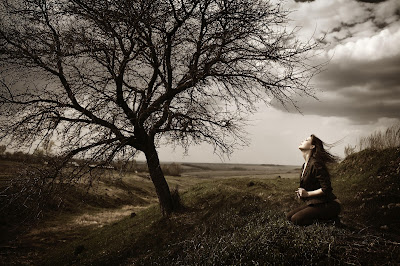I watch the tiny, blurry figures dart around the turf square on my computer screen. A team dressed in white is pushing the ball through to the other side of the field when a pass is suddenly intercepted. A girl in red receives the next pass wide to the left and begins a fast-break down the sideline. One defender in white makes a quick change of trajectory to cut off a path to the goal cage. The two figures run towards the corner of the screen side by side, both sprinting at top speed. As they pass the 25-yard mark, the defender turns towards the sideline in an attempt to get in front of the fast-break and slow her down, but in the moment where she should have stepped in front of the ball, the player instead falls to the turf. She doesn't get back up.
"I heard it pop!!" I gasp between sobs, "I heard something in my knee pop!". The athletic trainer tries to bend my leg, but stops when I curl into a full-body cringe. She and my coach, who had also run onto the field, pull me to my feet and help me hobble to the sideline.
. . .
An ACL tear is a fairly common injury for those who enjoy athletic activities. The knee is one of the most complex and unstable joints in the human body. The femur and tibia are joined by a plethora of ligaments and bend across a half-moon of cartilage. To understand the role of the ACL, picture the two bones as vertical posts in a section of fencing with two cross pieces forming an "X" between them. The PCL runs cross-wise from the femur to the tibia, preventing the joint from hyper-extending backwards. The ACL runs from the end of the femur to the front of the tibia, preventing the joint from extending too far forward. Injuring the ACL is like losing one of those cross-braces.
When I planted my left foot to turn in front of the other player, my tibia remained straight while my pivoting momentum turned my upper body and my femur towards the sideline. The force of slowing suddenly from a sprint pushed these two bones together while at that awkward angle. The "pop" that I heard in that moment was my ACL tearing apart as it was ground between my two bones.
. . .
Being the atypical person I am, I did not display the usual symptoms of immense swelling, loose joint, and non-specific soreness. It took a week and a half to eliminate diagnostics down to an MRI, which showed a complete ACL tear and deep bone bruising in the tibia (which explained the point tenderness which had lead to a wild goose chase for the athletic trainers).
I am medically minded, so hearing all these things was interesting, but the overwhelming thought that entered my mind as soon as I was told was simply: I'm done.
An ACL tear is repaired by surgery, which requires recovery time. In the meantime, dynamic movement can easily cause further pain and injury to the joint. Dynamic movement like running, cutting, pivoting, jumping. Dynamic movement like field hockey.
My season was over. My field hockey career was done.
. . .
I've tried out many things in my few years. Softball, piano, guitar, jewelry-making, crocheting - even one season of long-distance track and field. But field hockey is the only thing that has ever stuck this long. I've played ten seasons of field hockey. Ten years. That is half of my life.
As a senior in college, I had already begun the process of letting go. I was in the first stages of grieving the loss of something that had formed me, taught me, carried me. I never imagined that loss would come before we even entered conference play.
The formal diagnosis began a flurry actions and questions: When should we do surgery? Should it be here or at home? Will I be able to finish my academic semester? Will I be able to do clinicals?
After many phone calls home, an appointment with the doctor who had been following my case, and a few text conversations with the athletic trainers, it was settled: surgery over winter break, pre-hab for surgery with the athletic trainers, and a hefty brace to get me through clinicals. It felt like a best case scenario, all told.
And so the dust has settled. And I feel a hole gape in my chest.
I do my exercises to strengthen for surgery while my teammates do sprint workouts and shooting drills. I absentmindedly weigh myself in the training room and find that my ten pounds of "hockey weight" - muscle that I put on during season - is gone in just three weeks. I glance to the back seat of my car and the hockey stick laying there with a new, bright green grip that I applied two days after the injury, before I knew I wouldn't be playing again. I walk out to practice with my lopsided stride and watch as drills and line-ups adjust to fill in my position. I join the team huddle to listen to plays that I will never be part of.
I know that field hockey has given me gifts that will last a lifetime. I know that the lessons I have learned and friendships I have made cannot be taken away by this injury. I know that field hockey will always be a part of me.
But right now all I can feel is what I've lost.
photo credit: Scott Eyre






